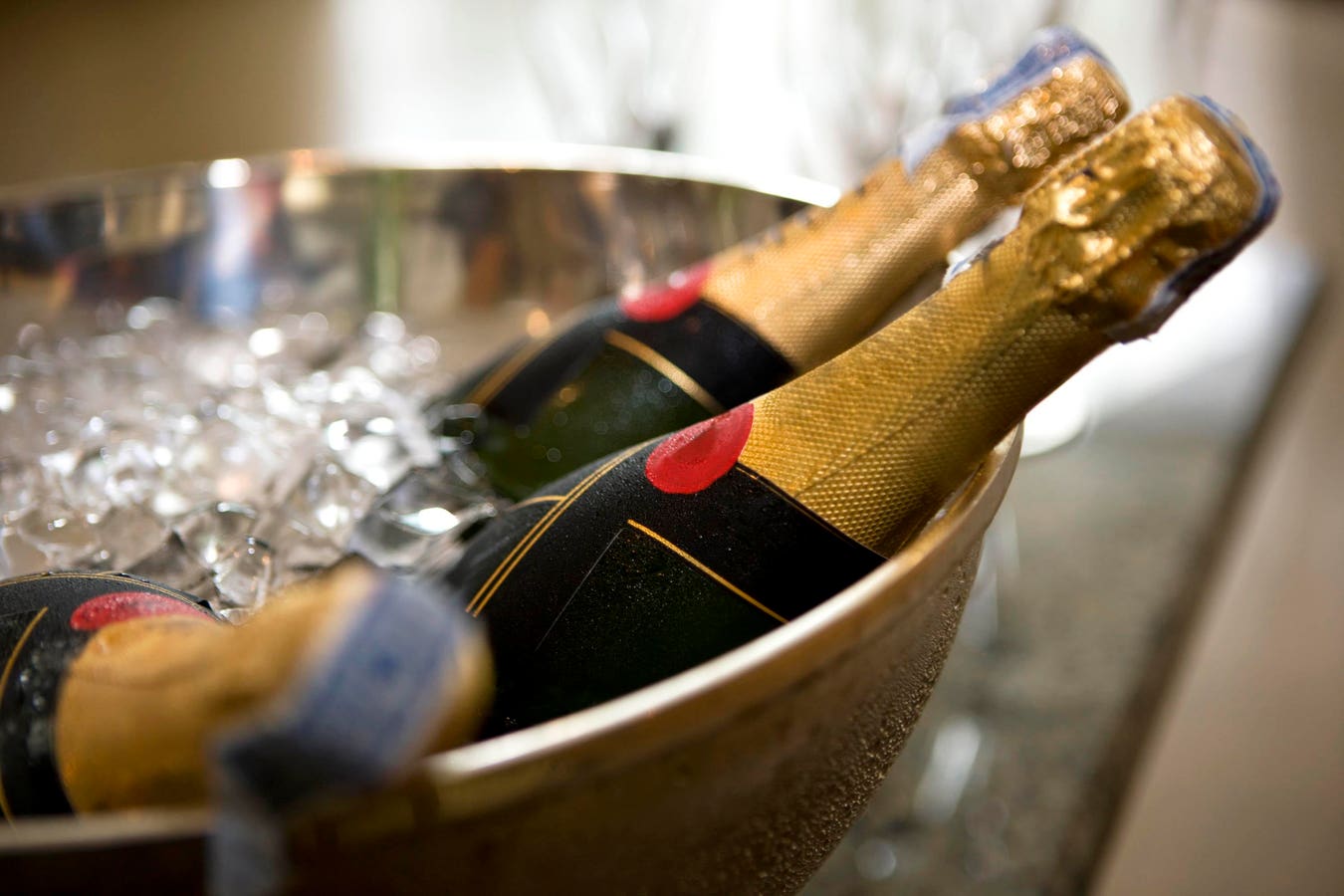The Do’s and Don’ts of Chilling Wine
Sometimes, what should be an easy mission, like cooking a hamburger, ends up requiring a complex approach. Just read anything on Serious Eats. Fortunately, chilling wine isn’t one of them. Follow a few guidelines and you’ll be sipping at the optimal temperature in no time.
However, not all wines should be chilled to the same literal degree. Why? Because of their chemical composition. The backbone of a white wine is acidity. The structure of a red comes from its tannins. Dessert wines have different amounts of residual sugar. Sparkling holds CO2. All come with degrees of alcohol. Thus, temperature can mute or accentuate a wine based on its components.
Let’s start with optimal temperature ranges.
Red Wine, Port
While times, they are a changing, common wisdom once advised serving reds at room temperature. But what does that mean? A humid Manhattan studio at mid-day in August? No, thank you. Unless you live in a European castle where your boudoir remains chilly round-year, room temp is outdated. Red wine should be cooled to within 50F to 65 F. Lighter-bodied wines with higher acidity, like Loire Valley Cabernet Franc, prefer lower temps (90 minutes in the fridge). Fuller-bodied, tannic wines such as Bordeaux and Napa Cabernet, taste better warmer (45 minutes in the fridge.) Port should be 60-65F. Red wine that’s too cold tastes dull; too warm, flabby and alcoholic. Like Goldilocks, somewhere in between is just right.
White, Rosé and Sparkling Wine
Whites always need a chill to lift delicate aromas and acidity. Like reds, fuller-bodied wines like Chardonnay from Burgundy and California, shine between 50F and 60F. Dessert wines like Sauternes fall into the same range. Lighter, fruitier wines work best colder, between 45F and 50F (2 hours in the fridge). That includes most Italian whites like Pinot Grigio and Sauvignon Blanc. Rarely should wine be colder than 45F, unless it’s a hot day and you’re serving porch pounders. Sparklers, however, need to be cold because CO2 dissolves better (stays trapped) in colder liquids; that means 40F to 50F. Vintage and prestige cuvée Champagnes can be served at the top end due to complexity and weight; basis Prosecco, at the bottom end.
How to Chill Wine
Advance Planning. This rule applies to most everything in life. Stick your picks in the fridge and remove an hour (white) or two (red) before dinner.
The Freezer. We’ve all done it. Loaded bottles into the icemaker as friends grew ambitious with their consumption, only to forget and find an icy explosion the next morning. While quality may not diminish at such extreme temperatures, one risks creating a mess. When the water content in wine freezes, it expands and can push the cork out in part or full, or even crack the bottle. This allows the egress of oxygen, which starts the clock on oxidation. If you use the freezer, set a timer for 30 minutes or resolve to drink mimosas at breakfast.
The Best Way to Chill Wine Quickly. Slip the bottle into an icy salt bath. No, don’t nab grandma’s Epsom salts. The table version will do. Grab a bucket or container and add water and ice. Ice absorbs heat from the water, helping bring the temperature down. But add salt, and the temperature and freezing point decreases, thereby lowering the melting temperature of the ice to below 32 degrees. Translation: brined ice water is far colder than simple ice water, allowing for rapid chilling of rosé in fifteen minutes or less.
The internet also advises pouring a glass of wine into a Ziplock bag and placing it in an ice bath. But, if you can’t wait 15 minutes for the bottle that you’d resort to putting alcohol in a baggie, maybe you’ve got a different problem.
Lauren Mowery is the founder of Azure Road, a digital publication devoted to sustainable stories in culinary, travel, and lifestyle pursuits.
Read the full article here





